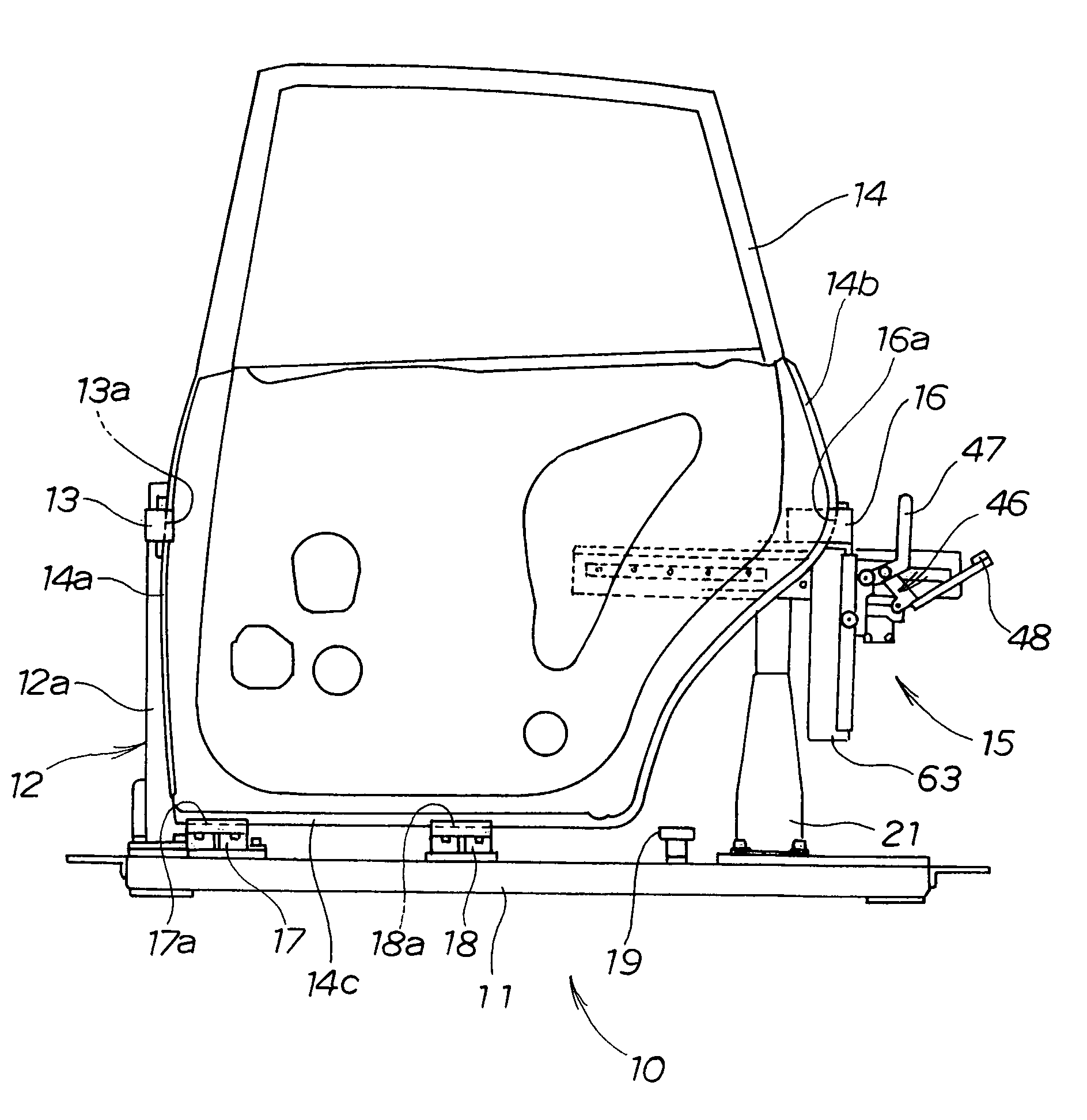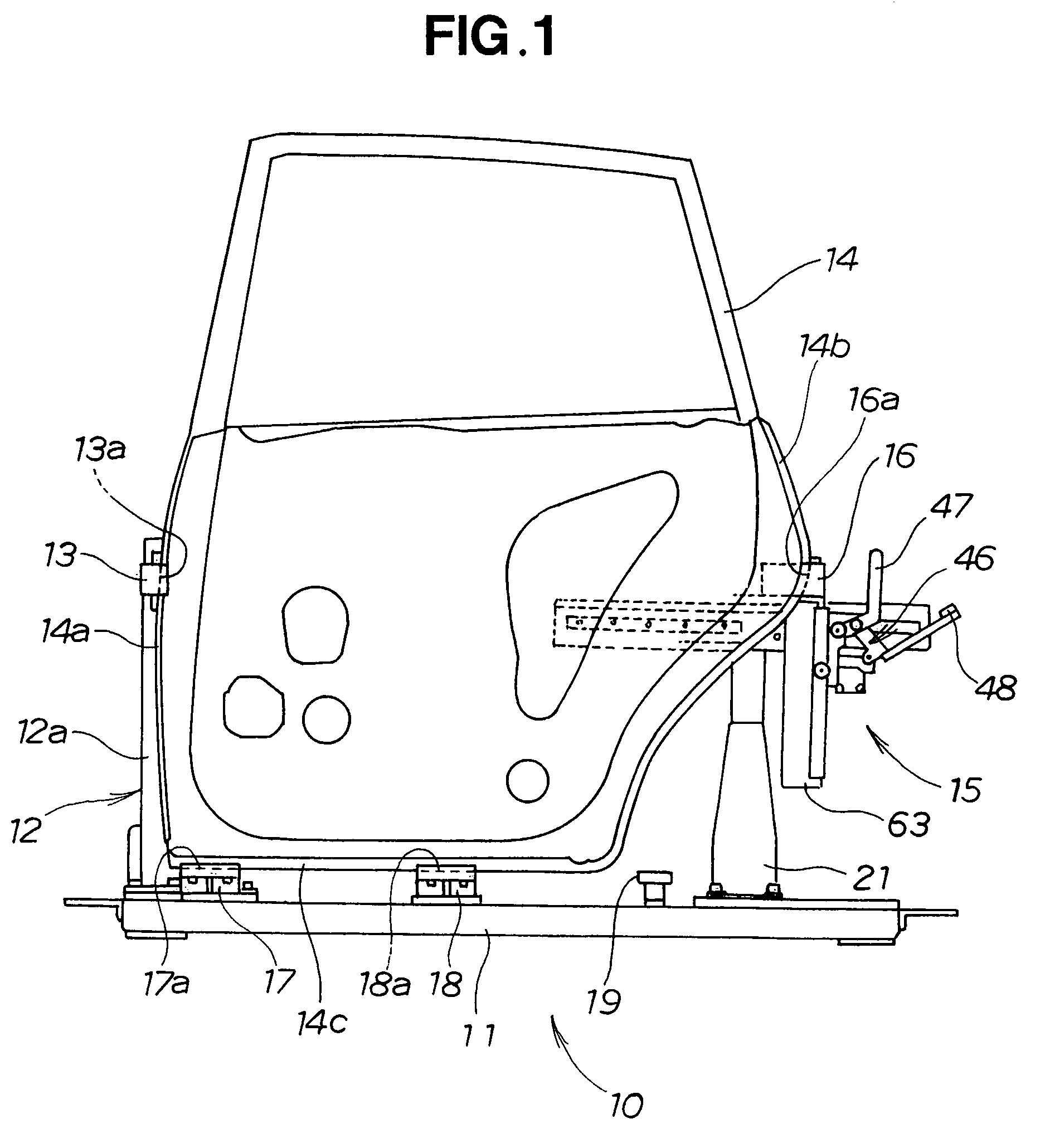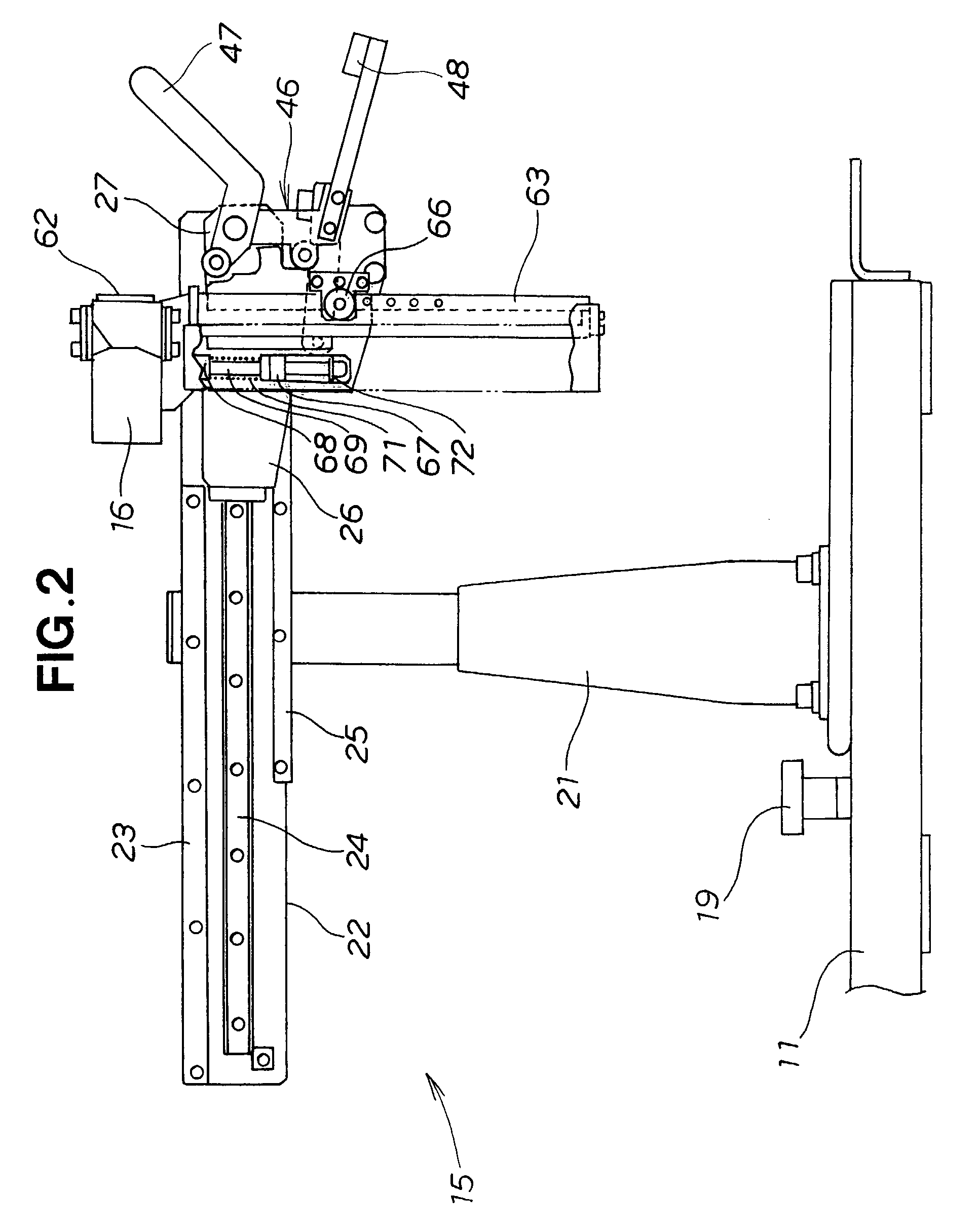Work carrier and work clamping method using the same
a work carrier and work technology, applied in the field of work carriers, can solve the problems of affecting the smooth and accurate assembling of window glass and other parts relative damage to the vehicle door, and inaccurate assembly of the vehicle door
- Summary
- Abstract
- Description
- Claims
- Application Information
AI Technical Summary
Benefits of technology
Problems solved by technology
Method used
Image
Examples
Embodiment Construction
[0032]As shown in FIG. 1, a work carrier 10 embodying the invention takes the form of a door pallet used in an automobile assembly line. The door pallet (work carrier) 10 includes a horizontal base 11, a front clamp unit 12 disposed on one end (left end in FIG. 1) of the base 11 and having a clamp member 13 for holding a front vertical edge 14a of a vehicle door 14, a rear clamp unit 15 disposed on the other end (right end in FIG. 1) of the base 11 and having a clamp member 16 for holding a rear vertical edge 14b of the vehicle door 14, and a plurality (three in the illustrated embodiment) of support members 17, 18 and 19 disposed on the base 11 between the front and rear clamp units 12 and 15 for supporting thereon a lower edge 14c of the vehicle door 14.
[0033]The clamp member 13 of the front clamp unit 12 has a groove 13a facing toward the clamp member 16 of the rear clamp unit 15. The groove 13a has a shape complementary in contour to the shape of the front vertical edge 14a of t...
PUM
| Property | Measurement | Unit |
|---|---|---|
| force | aaaaa | aaaaa |
| resiliency | aaaaa | aaaaa |
| distance | aaaaa | aaaaa |
Abstract
Description
Claims
Application Information
 Login to View More
Login to View More - R&D
- Intellectual Property
- Life Sciences
- Materials
- Tech Scout
- Unparalleled Data Quality
- Higher Quality Content
- 60% Fewer Hallucinations
Browse by: Latest US Patents, China's latest patents, Technical Efficacy Thesaurus, Application Domain, Technology Topic, Popular Technical Reports.
© 2025 PatSnap. All rights reserved.Legal|Privacy policy|Modern Slavery Act Transparency Statement|Sitemap|About US| Contact US: help@patsnap.com



